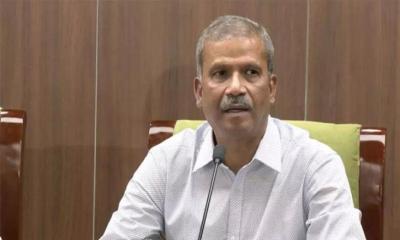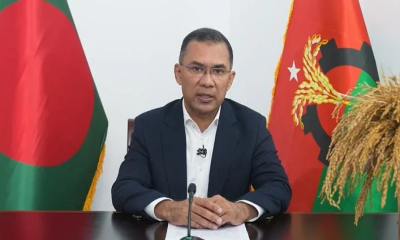Government has increased the maximum level of different pollutant emission in newly adopted Bangladesh Air Pollution (prevention) Rules 2022 which will encourage polluters, experts have said.
They expressed their concern in a national dialogue title “Ensuring clean air: challenges and the way forward” and urged to take necessary changes in the rules.
The dialogue was organized by Center for Atmospheric Pollution Studies (CAPS) on Thursday in Dhaka.
While presenting the keynote, Ahmad Kamruzzaman Majumder, CAPS Chairman also the head of Environmental Science department of Stamford University Bangladesh said, "Bangladesh Air Pollution (prevention) Rules allowed up to 35 micrograms particulate matter (PM2.5) in the air which was 15 micrograms in the earlier rules."
"The rules included coal and oil based power plant of 50 megawatt capacity and gas based plants of 100 megawatts in orange category which was in the red category in earlier version of the rules. The industries are considered the most dangerous supposed to be in red category," he added.
Kamruzzaman also said, "The ministry of industries decided to approve diesel import containing Sulfur 500 parts per million (PPM) instead of 350 PPM was set by the Bangladesh Standard and Testing Institute (BSTI). Though the country generally imports 50 PPM sulfur."
Air pollution increasing the diseases and death in Bangladesh. The relaxation in rules will amplified the number of patients as well as death.
According to the key note the National Institute of Diseases of the Chest and Hospital (NIDCH) treated around 12,000 patients in July, 2022, the number increased to 14,000 in July 2023.
According to the Air Quality Life Index-2023 report, global average of life expectancy loss is 28 months however in Bangladesh it is 80 months.
According to the world bank, each year in Bangladesh, 1.38 lakh people suffer from cardiac diseases due to lead contamination. Lead contamination reducing IQ of the children and increasing the risk of autism.
Kamruzzaman said, "If we can’t re-fix the standard and reduce pollutant Dhaka will remain the most polluted city and Bangladesh will remain the most polluted country of the world."
However, relaxation in pollution level will encourage polluters, he concluded.
Ziaul Haque, director of the Department of Environment (DoE) said, "At least 11 ministries are responsible for air pollution. All should work together to reduce air pollution."
Saber Hossain Chowdhury, the special climate envoy to the Prime Minister Sheikh Hasina, said, "A single ministry will not be able to do everything when at least 11 ministries and around 30 agencies are involved to pollute air. Even a single country is not enough to reduce pollution. Air flow brings pollutant in Bangladesh from West Bengal (a state of neighboring country India)."
"If West Bengal reduces pollution, the people of west Bengal will also lead a healthy life along with Bangladesh. It requires a collective effort to reduce air pollution," he furthered.
Saber expressed his hope to establish a principle where polluters should pay.




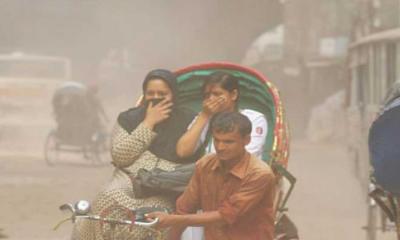
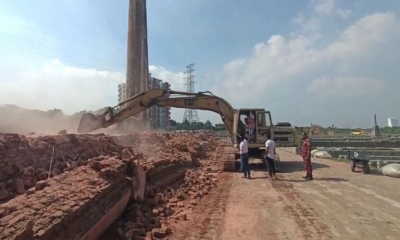
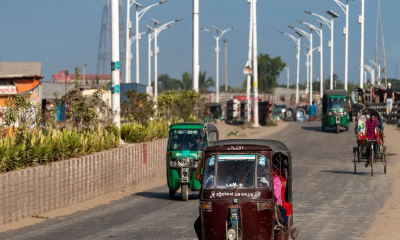
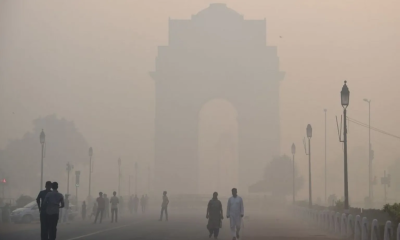
-20251226051932.jpeg)
-20251222051606.jpeg)
-20260216115008.webp)






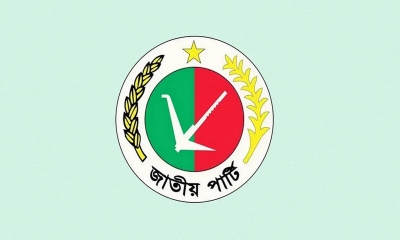
-20260216055149.webp)





